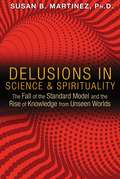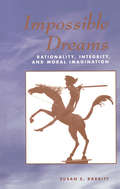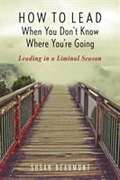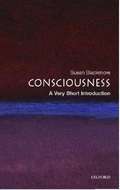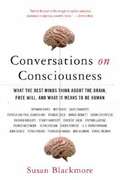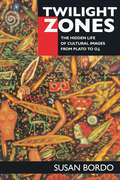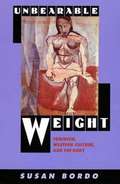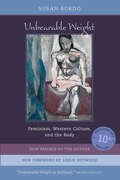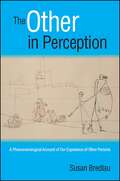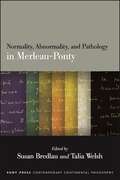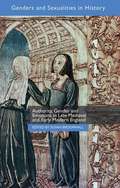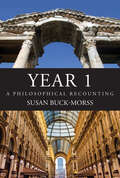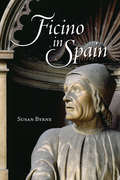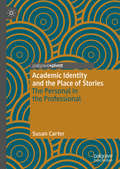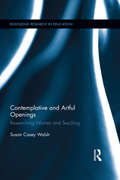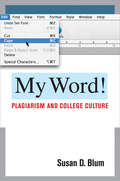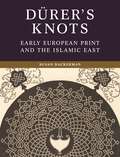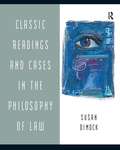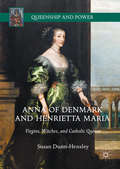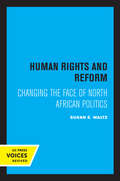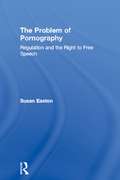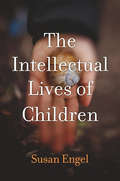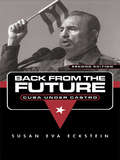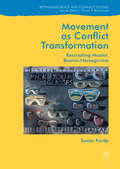- Table View
- List View
Delusions in Science and Spirituality: The Fall of the Standard Model and the Rise of Knowledge from Unseen Worlds
by Susan B. MartinezDebunks cherished theories of mainstream consensus and reveals the deeper mysteries of the science of the unseen • Reveals a new “Theory of Everything” to replace the standard model and complete our knowledge of Earth Science, anthropology, psychology, and spirituality • Explains the failings of the Big Bang, evolution, ice age theory, and global warming • Shows how the Freudian and Jungian theories of the unconscious have grossly misrepresented the spirit of man and the psyche of humanity What if science and society’s most darling theories, taught as fact, were 100% wrong? What if the anomalies that disprove these theories were covered up and distorted and any serious challenges brushed off as lunacy, hysteria, junk science, and dissension? In this primer in deprogramming, Susan B. Martinez reveals the disinformation at the root of mainstream consensus thinking. She punches gaping holes in the cherished theories of the Big Bang, Darwinian evolution, ice ages, and global warming. Drawing on the ancient science of the unseen and revelations from the Oahspe Bible as well as some of the most advanced thinkers in astrophysics, she explains a new “Theory of Everything” to replace the standard model. She explores the concept of vortexya, the cosmic whirlwind of our own geomagnetic field, which explains quite simply the subtle changes that take place on Earth and in the universe over time without the “magical thinking” of the Big Bang, global warming, or ice ages. Martinez reveals how the instability of society itself has found its way into our theories, positing explosive change and acceleration where there is none. She explains how homo sapiens’ evolution did not suddenly accelerate 40,000 years ago and culture did not accelerate to birth civilization a mere 6,000 years ago. She shows how the theories of the Freudian and Jungian unconscious and of reincarnation have grossly misrepresented the spirit of man and the psyche of humanity. Resurrecting the majestic order that was once recognized at the basis of reality, Martinez shows that the shift from the Age of Disinformation to the Age of Understanding is well underway.
Impossible Dreams: Rationality, Integrity and Moral Imagination
by Susan Babbitt<p>Conventional wisdom and commonsense morality tend to take the integrity of persons for granted. But for people in systematically unjust societies, self-respect and human dignity may prove to be impossible dreams. <p>Susan Babbitt explores the implications of this insight, arguing that in the face of systemic injustice, individual and social rationality may require the transformation rather than the realization of deep-seated aims, interests, and values. In particular, under such conditions, she argues, the cultivation and ongoing exercise of moral imagination is necessary to discover and defend a more humane social vision. Impossible Dreams is one of those rare books that fruitfully combines discourses that were previously largely separate: feminist and antiracist political theory, analytic ethics and philosophy of mind, and a wide range of non-philosophical literature on the lives of oppressed peoples around the world. It is both an object lesson in reaching across academic barriers and a demonstration of how the best of feminist philosophy can be in conversation with the best of “mainstream” philosophy—as well as affect the lives of real people.
How To Lead When You Don't Know Where You're Going: Leading in a Liminal Season
by Susan BeaumontThis is a practical book of hope for tired and weary leaders who are in danger of defining this era of ministry in terms of failure or loss. It does not attempt to describe where the church is headed; rather, it helps leaders stand firm in a disoriented state, learning from their mistakes and leading despite the confusion. This book lays out leadership tasks appropriate for liminal seasons. It blends sound organizational practices with a contemplative leadership stance―an attitude of wonder and an openness to discovery. The book begins by inviting a fundamental shift in the spiritual orientation of the leader, and then moves on to explore the soulfulness of the institution. Author Susan Beaumont introduces four types of work that are appropriate for organizations in a liminal season: clarifying institutional vocation, shaping institutional memory, deepening communal discernment, and nurturing emergence.
Consciousness: A Very Short Introduction
by Susan Blackmore"The last great mystery for science," consciousness has become a controversial topic. Consciousness: A Very Short Introduction challenges readers to reconsider key concepts such as personality, free will, and the soul. How can a physical brain create our experience of the world? What creates our identity? Do we really have free will? Could consciousness itself be an illusion? Exciting new developments in brain science are opening up these debates, and the field has now expanded to include biologists, neuroscientists, psychologists, and philosophers. This book clarifies the potentially confusing arguments and clearly describes the major theories, with illustrations and lively cartoons to help explain the experiments. Topics include vision and attention, theories of self, experiments on action and awareness, altered states of consciousness, and the effects of brain damage and drugs. This lively, engaging, and authoritative book provides a clear overview of the subject that combines the perspectives of philosophy, psychology, and neuroscience--and serves as a much-needed launch pad for further exploration of this complicated and unsolved issue.
Conversations on Consciousness: What the Best Minds Think about the Brain, Free Will, and What It Means to Be Human
by Susan BlackmoreIn Conversations on Consciousness, Susan Blackmore interviews some of the great minds of our time, a who's who of eminent thinkers, all of whom have devoted much of their lives to understanding the concept of consciousness. The interviewees, ranging from major philosophers to renowned scientists, talk candidly with Blackmore about some of the key philosophical issues confronting us in a series of conversations that are revealing, insightful, and stimulating. They ruminate on the nature of consciousness (is it something apart from the brain?) and discuss if it is even possible to understand the human mind. Some of these thinkers say no, but most believe that we will pierce the mystery surrounding consciousness, and that neuroscience will provide the key. Blackmore goes beyond the issue of consciousness to ask other intriguing questions: Is there free will? (A question which yields many conflicted replies, with most saying yes and no.) If not, how does this effect the way you live your life; and more broadly, how has your work changed the way you live? <P><P> Paired with an introduction and extensive glossary that provide helpful background information, these provocative conversations illuminate how some of the greatest minds tackle some of the most difficult questions about human nature.
Twilight Zones: The Hidden Life of Cultural Images from Plato to O.J.
by Susan BordoConsidering everything from Nike ads, emaciated models, and surgically altered breasts to the culture wars and the O.J. Simpson trial, Susan Bordo deciphers the hidden life of cultural images and the impact they have on our lives. She builds on the provocative themes introduced in her acclaimed work Unbearable Weight—which explores the social and political underpinnings of women's obsession with bodily image—to offer a singularly readable and perceptive interpretation of our image-saturated culture. As it becomes increasingly difficult to distinguish between appearance and reality, she argues, we need to rehabilitate the notion that not all versions of reality are equally trustworthy. Bordo writes with deep compassion, unnerving honesty, and bracing intelligence. Looking to the body and bodily practices as a concrete arena where cultural fantasies and anxieties are played out, she examines the mystique and the reality of empowerment through cosmetic surgery. Her brilliant discussion of sexual harassment reflects on the Clarence Thomas/Anita Hill controversy as well as the film Disclosure. She suggests that sexuality, although one of the mediums of harassment, is not its essence, and she calls for the recasting of harassers as bullies rather than sex fiends. Bordo also challenges the continuing marginalization of feminist thought, in particular the failure to read feminist work as cultural criticism. Finally, in a powerful and moving essay called "Missing Kitchens"—written in collaboration with her two sisters—Bordo explores notions of bodies, place, and space through a recreation of the topographies of her childhood. Throughout these essays, Bordo avoids dogma and easy caricature. Consistently, and on many levels, she demonstrates the profound relationship between our lives and our theories, our feelings and our thoughts.
Unbearable Weight: Feminism, Western Culture, and the Body
by Susan BordoFantastic study of women and their bodies. This 10th anniversary edition has a new preface by the author plus a foreword by Leslie Haywood, feminist scholar superstar, an authority on women athletes and body builders. When originally published in 1993, it made the list of NYT Notable Books of the Year.
Unbearable Weight: Feminism, Western Culture, and the Body
by Susan Bordo"Unbearable Weight is brilliant. From an immensely knowledgeable feminist perspective, in engaging, jargonless (!) prose, Bordo analyzes a whole range of issues connected to the body—weight and weight loss, exercise, media images, movies, advertising, anorexia and bulimia, and much more—in a way that makes sense of our current social landscape—finally! This is a great book for anyone who wonders why women's magazines are always describing delicious food as 'sinful' and why there is a cake called Death by Chocolate. Loved it!"—Katha Pollitt, Nation columnist and author of Subject to Debate: Sense and Dissents on Women, Politics, and Culture (2001)
The Other in Perception: A Phenomenological Account of Our Experience of Other Persons
by Susan BredlauDrawing on the original phenomenological work of Maurice Merleau-Ponty, Edmund Husserl, Simone de Beauvoir, and John Russon, as well as recent research in child psychology, The Other in Perception argues for perception's inherently existential significance: we always perceive a world and not just objective facts. The world is the rich domain of our personal and interpersonal lives, and central to this world is the role of other people. We are "paired" with others such that our perception is really the enactment of a coinhabiting of a shared world. These relations with others shape the very way in which we perceive our world. Susan Bredlau explores two uniquely formative domains in which our pairing relations with others are particularly critical: childhood development and sexuality. It is through formative childhood experience that the essential, background structures of our world are instituted, which has important consequences for our developed perceptual life. Sexuality is an analogous domain of formative intersubjective experience. Taken as a whole, Bredlau demonstrates the unique, pervasive, and overwhelmingly important role of other people within our lived experience.
Normality, Abnormality, and Pathology in Merleau-Ponty (SUNY series in Contemporary Continental Philosophy)
by Susan Bredlau; Talia WelshMaurice Merleau-Ponty’s work draws our attention to how the body is always our way of having a world and never merely a thing in the world. Our conception of the body must take account of our cultures, our historically located sciences, and our interpersonal relations and cannot reduce the body to a biological given. Normality, Abnormality, and Pathology in Merleau-Ponty takes up Merleau-Ponty’s phenomenology of the body to explore the ideas of normality, abnormality, and pathology. Focusing on the lived experiences of various styles of embodiment, the book challenges our usual conceptions of normality and abnormality and shows how seemingly objective scientific research, such as the study of pathological symptoms, is inadequate to the phenomena it purports to comprehend. The book offers new insights into our understandings of health and illness, ability and disability, and the scientific and cultural practices that both enable and limit our capacity for diverse experiences.
Authority, Gender and Emotions in Late Medieval and Early Modern England
by Susan BroomhallThis collection explores how situations of authority, governance, and influence were practised through both gender ideologies and affective performances in medieval and early modern England. Authority is inherently relational it must be asserted over someone who allows or is forced to accept this dominance. The capacity to exercise authority is therefore a social and cultural act, one that is shaped by social identities such as gender and by social practices that include emotions. The contributions in this volume, exploring case studies of women and men's letter-writing, political and ecclesiastical governance, household rule, exercise of law and order, and creative agency, investigate how gender and emotions shaped the ways different individuals could assert or maintain authority, or indeed disrupt or provide alternatives to conventional practices of authority.
Year 1: A Philosophical Recounting
by Susan Buck-MorssReclaiming the first century as common ground rather than the origin of deeply entrenched differences: liberating the past to speak to us in another way.Conventional readings of antiquity cast Athens against Jerusalem, with Athens standing in for "reason" and Jerusalem for "faith." And yet, Susan Buck-Morss reminds us, recent scholarship has overturned this separation. Naming the first century as a zero point--"year one"--that divides time into before and after is equally arbirtrary, nothing more than a convenience that is empirically meaningless. In YEAR 1, Buck-Morss liberates the first century so it can speak to us in another way, reclaiming it as common ground rather than the origin of deeply entrenched differences. Buck-Morss aims to topple various conceptual givens that have shaped modernity as an episteme and led us into some unhelpful postmodern impasses. She approaches the first century through the writings of three thinkers often marginalized in current discourse: Flavius Josephus, historian of the Judaean war; the neo-Platonic philosopher Philo of Alexandria; and John of Patmos, author of Revelation, the last book of the Christian Bible. Also making appearances are Antigone and John Coltrane, Plato and Bulwer-Lytton, al-Farabi and Jean Anouilh, Nicholas of Cusa and Zora Neale Hurston--not to mention Descartes, Kant, Hegel, Kristeva, and Derrida. Buck-Morss shows that we need no longer partition history as if it were a homeless child in need of the protective wisdom of Solomon. Those inhabiting the first century belong together in time, and therefore not to us.
Ficino in Spain
by Susan ByrneAs the first translator of Plato's complete works into Latin, the Florentine writer Marsilio Ficino (1433-99) and his blend of Neoplatonic and Hermetic philosophy were fundamental to the intellectual atmosphere of the Renaissance. In Spain, his works were regularly read, quoted, and referenced, at least until the nineteenth century, when literary critics and philosophers wrote him out of the history of early modern Spain.In Ficino in Spain, Susan Byrne uses textual and bibliographic evidence to show the pervasive impact of Ficino's writings and translations on the Spanish Renaissance. Cataloguing everything from specific mentions of his name in major texts to glossed volumes of his works in Spanish libraries, Byrne shows that Spanish writers such as Miguel de Cervantes, Lope de Vega, Bartolomé de las Casas, and Garcilaso de la Vega all responded to Ficino and adapted his imagery for their own works. An important contribution to the study of Spanish literature and culture from the fifteenth to the seventeenth centuries, Ficino in Spain recovers the role that Hermetic and Neoplatonic thought played in the world of Spanish literature.
Academic Identity and the Place of Stories: The Personal in the Professional
by Susan CarterThis book explores academic identity development in the 21st century university. Recognising dramatic shifts in academic practices and landscapes, the book pushes back on rising neoliberalism with a person-focused, culturally aware pathway for career development. Stories of the author’s own experiences intersect a solid grounding in educational literature, encouraging scholars to take an active role in considering their own academic identity. In doing so, this volume suggests that academics look inward at what matters to them – rather than being overwhelmed by academia – in order to shape identities and career trajectories that are dynamic and satisfying.
Contemplative and Artful Openings: Researching Women and Teaching (Routledge Research in Education #193)
by Susan Casey WalshHighlighting an arts-based inquiry process that involves contemplation, mindful awareness, and artful writing, this book explores women’s difficult experiences in teaching. It weaves a strong autobiographical thread with artifacts from several research projects with female teachers. By linking innovative approaches to research that involve visual images and poetic writing with feminist poststructuralist theories and Buddhist-inspired practices, Walsh offers new understandings about what it means to be critical in research and teaching—and also what transformation, both social and personal, might entail.
My Word!: Plagiarism and College Culture
by Susan D. Blum"Classroom Cheats Turn to Computers." "Student Essays on Internet Offer Challenge to Teachers." "Faking the Grade." Headlines such as these have been blaring the alarming news of an epidemic of plagiarism and cheating in American colleges: more than 75 percent of students admit to having cheated; 68 percent admit to cutting and pasting material from the Internet without citation. Professors are reminded almost daily that many of today's college students operate under an entirely new set of assumptions about originality and ethics. Practices that even a decade ago would have been regarded almost universally as academically dishonest are now commonplace. Is this development an indication of dramatic shifts in education and the larger culture? In a book that dismisses hand-wringing in favor of a rich account of how students actually think and act, Susan D. Blum discovers two cultures that exist, often uneasily, side by side in the classroom.Relying extensively on interviews conducted by students with students, My Word! presents the voices of today's young adults as they muse about their daily activities, their challenges, and the meanings of their college lives. Outcomes-based secondary education, the steeply rising cost of college tuition, and an economic climate in which higher education is valued for its effect on future earnings above all else: These factors each have a role to play in explaining why students might pursue good grades by any means necessary. These incentives have arisen in the same era as easily accessible ways to cheat electronically and with almost intolerable pressures that result in many students being diagnosed as clinically depressed during their transition from childhood to adulthood.However, Blum suggests, the real problem of academic dishonesty arises primarily from a lack of communication between two distinct cultures within the university setting. On one hand, professors and administrators regard plagiarism as a serious academic crime, an ethical transgression, even a sin against an ethos of individualism and originality. Students, on the other hand, revel in sharing, in multiplicity, in accomplishment at any cost. Although this book is unlikely to reassure readers who hope that increasing rates of plagiarism can be reversed with strongly worded warnings on the first day of class, My Word! opens a dialogue between professors and their students that may lead to true mutual comprehension and serve as the basis for an alignment between student practices and their professors' expectations.
Dürer’s Knots: Early European Print and the Islamic East
by Susan DackermanAn important new examination of Islamic themes in the art of Albrecht DürerAlbrecht Dürer&’s depictions of Muslim figures and subjects are considered by many to be among his most perplexing images. This confusion arises from the assumption that the artist and his northern European contemporaries regarded the Muslim Levant as an exotic faraway land inhabited by hostile adversaries, not a region of neighboring empires affiliated through political and mercantile networks. Susan Dackerman casts Dürer&’s art in an entirely new light, focusing on prints that portray cooperation between the Muslim and Christian worlds rather than conflict and war, enabling us to better understand early modern Europe through its visual culture.In this beautifully illustrated book, Dackerman provides new readings of three of the artist&’s most enigmatic print projects—Sea Monster, Knots, and Landscape with Cannon—situating them within historical contexts that reflect productive collaborations between Christendom and Islam, from the artistic and commercial to the ideological and political. Dackerman notes how Gutenberg&’s development of printing shares an inextricable relationship to the 1453 Ottoman siege of Constantinople. While Gutenberg&’s workshop produced a call to crusade and other publications antagonistic to the Muslim East, Dürer&’s prints, she shows, instead emphasize instances of affiliation between Christendom and Islam.A breathtaking work of scholarship, Dürer&’s Knots shows how the artist&’s prints of Muslim subjects give expression to the interconnectedness of Christian Europe and the Islamic East.
Classic Readings and Cases in the Philosophy of Law
by Susan DimockWith over sixty cases as support, this text presents the philosophy of law as a perpetual series of debates with overlapping lines and cross connections. Using law as a focus to bring into relief many social and political issues of pressing importance in contemporary society, this book encourages readers to think critically and philosophically. Classic Readings and Cases in the Philosophy of Law centers on five major questions: What is law? What, if any, connection must there be between law and morality? When should law be used to restrict the liberty of individuals? To what extent should democratic states permit civil disobedience? What, if anything, justifies the infliction of punishment on those who violate the law? The extensive anthology of cases covers the mundane to the grandest of constitutional issues, including controversial topics like ownership of genetic material, capital punishment, and gay rights. Brief introductions to each case describe the central issue being litigated, the legal reasoning of the justices–both majority and dissenting–the decision of the court, and its philosophical significance.
Anna of Denmark and Henrietta Maria: Virgins, Witches, and Catholic Queens (Queenship and Power)
by Susan Dunn-HensleyThis book examines how early Stuart queens navigated their roles as political players and artistic patrons in a culture deeply conflicted about the legitimacy of female authority. Anna of Denmark and Henrietta Maria both employed powerful female archetypes such as Amazons and the Virgin Mary in court performances. Susan Dunn-Hensley analyzes how darker images of usurping, contaminating women, epitomized by the witch, often merged with these celebratory depictions. By tracing these competing representations through the Jacobean and Caroline periods, Dunn-Hensley peels back layers of misogyny from historical scholarship and points to rich new lines of inquiry. Few have written about Anna's religious beliefs, and comparing her Catholicism with Henrietta Maria's illuminates the ways in which both women were politically subversive. This book offers an important corrective to centuries of negative representation, and contributes to a fuller understanding of the role of queenship in the English Civil War and the fall of the Stuart monarchy.
Human Rights and Reform: Changing the Face of North African Politics
by Susan E. WaltzIndependence from colonial rule did not usher in the halcyon days many North Africans had hoped for, as the new governments in Morocco, Tunisia, and Algeria soon came to rely on repression to reinforce and maintain power. In response to widespread human rights abuses, individuals across the Maghrib began to form groups in the late 1970s to challenge the political practices and structures in the region, and over time these independent human rights organizations became prominent political actors. The activists behind them are neither saints nor revolutionaries, but political reformers intent on changing political patterns that have impeded democratization. This study, the first systematic comparative analysis of North African politics in more than a decade, explores the ability of society, including Islamist forces, to challenge the powers of states. Locating Maghribi polities within their cultural and historical contexts, Waltz traces state-society relations in the contemporary period. Even as Algeria totters at the brink of civil war and security concerns rise across the region, the human rights groups Susan Waltz examines implicitly challenge the authoritarian basis of political governance. Their efforts have not led to the democratic transition many had hoped, but human rights have become a crucial new element of North African political discourse. This title is part of UC Press's Voices Revived program, which commemorates University of California Press’s mission to seek out and cultivate the brightest minds and give them voice, reach, and impact. Drawing on a backlist dating to 1893, Voices Revived makes high-quality, peer-reviewed scholarship accessible once again using print-on-demand technology. This title was originally published in 1995.
The Problem of Pornography: Regulation and the Right to Free Speech
by Susan EastonCan a commitment to free speech be reconciled with the regulation of pornography? Easton explores and evaluates the feminist and liberal arguments to establish that it can. A text invaluable to anyone interested in this, the thorniest of issues.
The Hungry Mind
by Susan EngelDespite American education's mania for standardized tests, testing misses what matters most about learning: the desire to learn in the first place. Susan Engel offers a highly readable exploration of what curiosity is, how it can be measured, how it develops in childhood, and how educators can put curiosity at the center of the classroom.
The Intellectual Lives of Children
by Susan EngelA look inside the minds of young children shows how we can better nurture their abilities to think and grow.Adults easily recognize children’s imagination at work as they play. Yet most of us know little about what really goes on inside their heads as they encounter the problems and complexities of the world around them. In The Intellectual Lives of Children, Susan Engel brings together an extraordinary body of research to explain how toddlers, preschoolers, and elementary-aged children think. By understanding the science behind how children observe their world, explain new phenomena, and solve problems, parents and teachers will be better equipped to guide the next generation to become perceptive and insightful thinkers.The activities that engross kids can seem frivolous, but they can teach us a great deal about cognitive development. A young girl’s bug collection reveals important lessons about how children ask questions and organize information. Watching a young boy scoop mud can illuminate the process of invention. When a child ponders the mystery of death, we witness how children build ideas. But adults shouldn’t just stand around watching. When parents are creative, it can rub off on their children. Engel shows how parents and teachers can stimulate children’s curiosity by presenting them with mysteries to solve.Unfortunately, in our homes and schools, we too often train children to behave rather than nurture their rich and active minds. This focus is misguided, since it is with their first inquiries and inventions—and the adult world’s response to them—that children lay the foundation for a lifetime of learning and good thinking. Engel offers readers a scientifically based approach that will encourage children’s intellectual growth and set them on the path of inquiry, invention, and ideas.
Back From the Future: Cuba Under Castro
by Susan Eva EcksteinThis book has long been regarded as the definitive history of Castro's communist regime, beginning in 1959 through the 1990s. This updated, second edition contains a new epilogue by the author that covers the last decade, including such newsworthy events as the Elian Gonzalez controversy, the growing immigrant community of Cuban-Americans in Florida, the role of Cuban-Americans in the 2000 presidential election, the withering U.S. sales embargo and the inevitable transition of power now that Castro is in his mid-70s.
Movement as Conflict Transformation: Rescripting Mostar, Bosnia-Herzegovina (Rethinking Peace and Conflict Studies)
by Susan FordeThis book presents narratives of the social use of space in the divided city of Mostar, Bosnia-Herzegovina. Through the narratives of movement in the city, the work demonstrates how residents engage informally with conflict transformation through new movement and use of spaces. This book will appeal across the social sciences, and in particular to students, academics, and researchers in the fields of peace and conflict studies, political sociology, and human geography.
